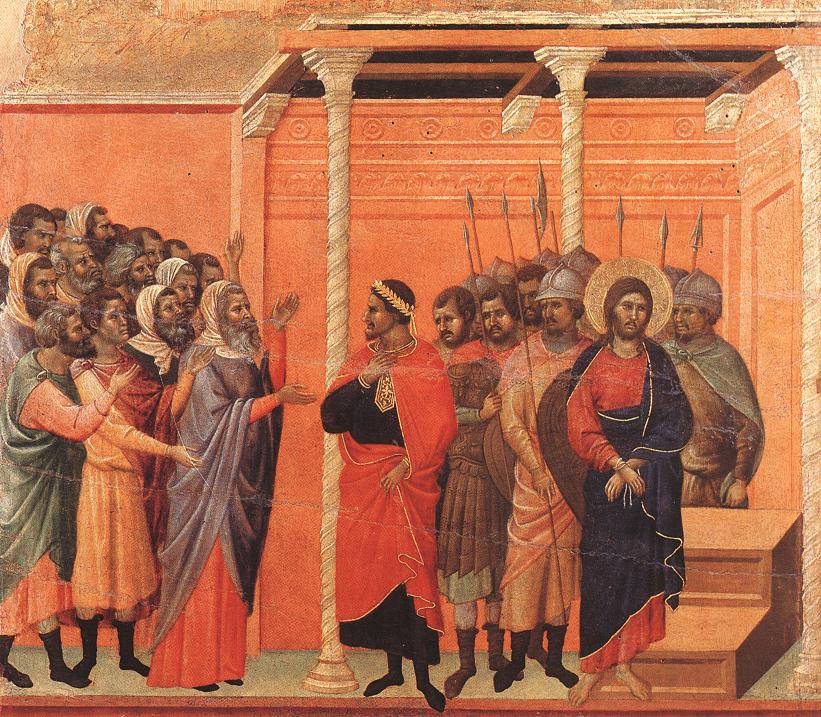One common reading of Christ’s relationship to the Pharisees runs like this: the Pharisees were legalistic, bound to the recitation of inert laws and the practice of a moribund religion characterised by an ever growing battery of precepts and injunctions; Christ came to liberate us from such things, freeing us to the new life of grace, marked by the glorious freedom of the Children of God.
In fact, such a reading risks maligning the Pharisees. It is difficult to square the Jewish faith we see Christ practising - with all its festivals, feasts, communal gatherings and religious diversity - with a simple image of a dead religion chained to an inert set of laws. For all that Christ does indeed take aim at Pharisaic legalism and hypocrisy, both he and they share a desire to renew the covenant people in faith and morals, and when Christ deals with the specifics of Pharisaic teaching - as he does today in one of his ‘you have heard it said…. but I now say to you…’ phrases - he makes the law more burdensome, not less so. Whereas the Pharisees saw the obligation to love neighbour in terms of loving those within the community of Israel (mediating the wrath of God to the nations through their hatred), Christ stresses the obligation to love even those who oppose us. Why? Because we are to be holy like our heavenly Father, bestowing gratuitous love on those who oppose us, just as he lavishes grace upon the world that rebels against him.
In the light of our sinfulness, this all sounds rather hopeless and discouraging. How can we mere mortals ever hope to reach such divine levels of holiness? Our hope is secure, however, because those levels of human holiness have been reached in Christ’s perfect life of self-donation, which He now offers to us. It is this very holiness of Christ that is offered to us through the Sacraments, that has been stamped onto our souls by the Holy Baptism through which we have been engrafted into Christ, and which is revived in us through the Sacrament of Penance. These Sacraments lead towards the Eucharist, the source and summit of our faith, in which we receive Christ Himself, the living presence of the living God, whose communion prevents our piety devolving into the type of legalism of which we are quick to accuse the Pharisees.

No comments:
Post a Comment